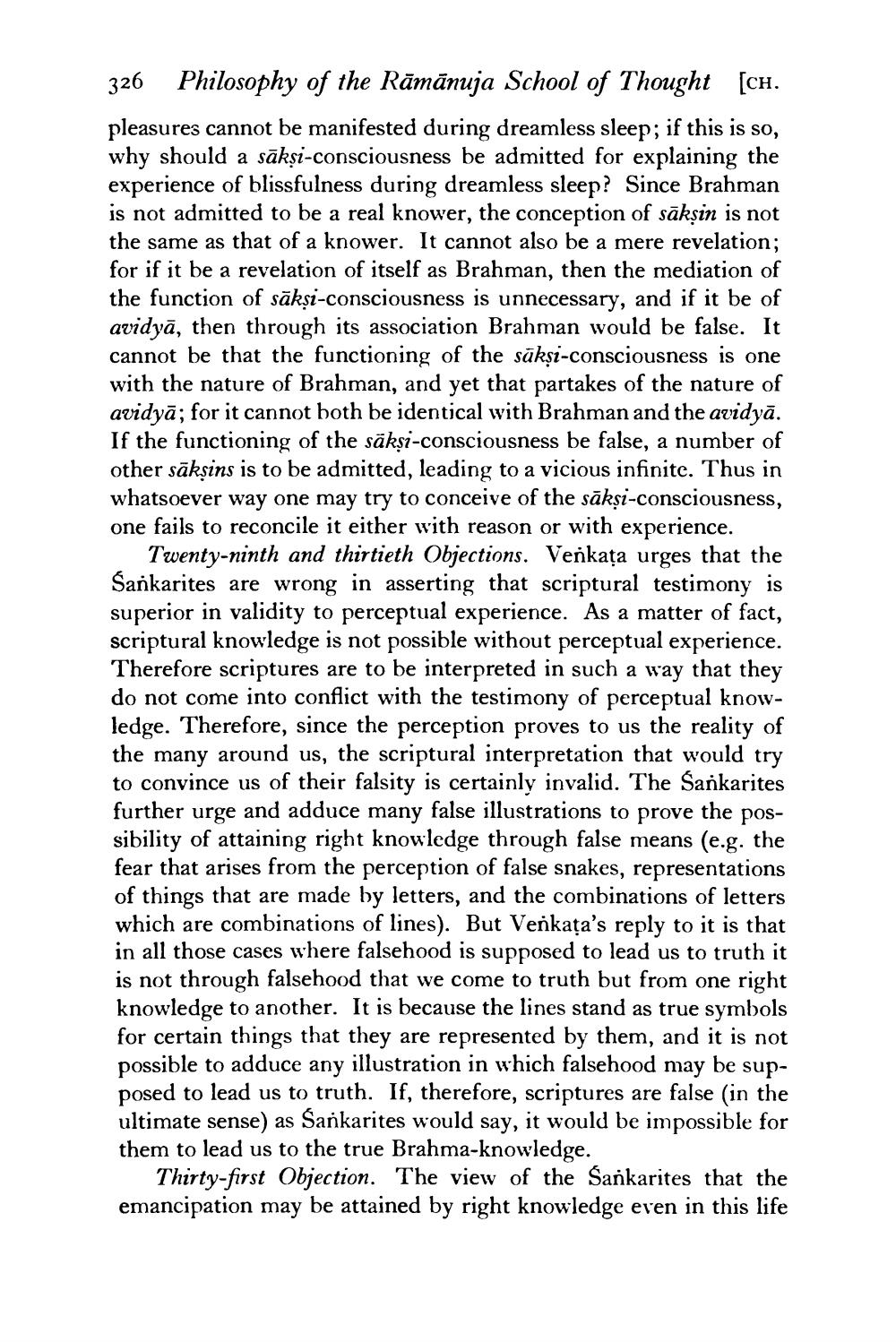________________
326 Philosophy of the Rāmānuja School of Thought [CH. pleasures cannot be manifested during dreamless sleep; if this is so, why should a sākṣi-consciousness be admitted for explaining the experience of blissfulness during dreamless sleep? Since Brahman is not admitted to be a real knower, the conception of sākṣin is not the same as that of a knower. It cannot also be a mere revelation; for if it be a revelation of itself as Brahman, then the mediation of the function of sākṣi-consciousness is unnecessary, and if it be of avidyā, then through its association Brahman would be false. It cannot be that the functioning of the sākṣi-consciousness is one with the nature of Brahman, and yet that partakes of the nature of avidyā; for it cannot both be identical with Brahman and the avidyā. If the functioning of the sākṣi-consciousness be false, a number of other sāksins is to be admitted, leading to a vicious infinite. Thus in whatsoever way one may try to conceive of the sākṣi-consciousness, one fails to reconcile it either with reason or with experience.
Twenty-ninth and thirtieth Objections. Venkața urges that the Sankarites are wrong in asserting that scriptural testimony is superior in validity to perceptual experience. As a matter of fact, scriptural knowledge is not possible without perceptual experience. Therefore scriptures are to be interpreted in such a way that they do not come into conflict with the testimony of perceptual knowledge. Therefore, since the perception proves to us the reality of the many around us, the scriptural interpretation that would try to convince us of their falsity is certainly invalid. The Sankarites further urge and adduce many false illustrations to prove the possibility of attaining right knowledge through false means (e.g. the fear that arises from the perception of false snakes, representations of things that are made by letters, and the combinations of letters which are combinations of lines). But Venkața's reply to it is that in all those cases where falsehood is supposed to lead us to truth it is not through falsehood that we come to truth but from one right knowledge to another. It is because the lines stand as true symbols for certain things that they are represented by them, and it is not possible to adduce any illustration in which falsehood may be supposed to lead us to truth. If, therefore, scriptures are false (in the ultimate sense) as Sankarites would say, it would be impossible for them to lead us to the true Brahma-knowledge.
Thirty-first Objection. The view of the Sankarites that the emancipation may be attained by right knowledge even in this life




